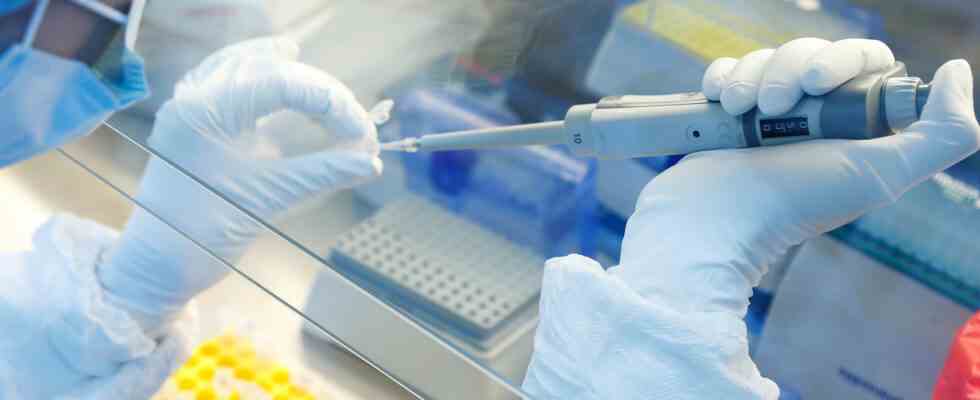Status: 07.01.2023 09:06
mRNA vaccines – for example against skin cancer – are showing promise in clinical studies. Companies that have developed corona vaccines in this way are working on this novel cancer therapy.
mRNA: At least since the corona pandemic, almost everyone can do something with these four letters. Companies like Moderna and BioNTech, which developed corona vaccines based on mRNA technology, have been dealing with DNA’s “little sister” for some time. The main focus was not on vaccines against infectious diseases, but on cancer therapies.
The copy of the genetic blueprint
mRNA, also known as messenger RNA, plays an important role in the body. Our entire genome is stored as DNA in the cell nucleus. However, if a gene from the genome is needed elsewhere in the cell, it would be too dangerous to bring all the DNA there: If it were damaged or destroyed in the process, the entire cell would die.
Therefore, a copy is made of the corresponding gene – from mRNA. This then leaves the cell nucleus and is translated into a protein where it is needed. This system is comparable to a blueprint on a construction site: it is kept in a safe place and only the parts that are needed are copied from it. If the copy gets dirty, wet or completely destroyed on site, you can simply make a new copy.
Vaccination with an intermediate step
If you use mRNA as a vaccine, you use a short mRNA strand that codes for an antigen. This is part of a pathogen that is visible to the immune system. In the case of corona vaccines, antigens on the spike protein that sits on the surface of the virus are almost always used.
In the body, the mRNA is translated into the antigen, which the immune system then recognizes as foreign and antibodies are produced against it. They then recognize the corresponding antigen on the real pathogen when vaccinated people later become infected with it.
The antigen can also be administered directly as a vaccination: Then the body does not have to go through the intermediate step of producing it itself. However, mRNA is much easier to develop and produce than proteins. Because the body already has the perfect machinery in every cell to produce proteins from mRNA. So a big advantage of mRNA vaccines is the speed with which a vaccine can be developed. This became clear during the corona pandemic.
Individual cancer therapy with mRNA
This speed also makes it possible to develop individual cancer therapies. A tumor is examined for certain characteristics – so-called neoantigens, which distinguish cancer cells from healthy cells. The neoantigens are then translated into an mRNA that is given to patients as a vaccine. The immune system then produces antibodies that target the cancer cells.
In December, the US company Moderna published promising results from a clinical phase 2b study of an individual skin cancer therapy based on mRNA technology. In the study 157 subjects took part. The mRNA drug was administered along with an antibody drug that is well established in the treatment of skin cancer. The risk of the cancer coming back or patients dying was reduced by 44 percent with the mRNA drug compared to those treated with the antibody drug alone.
Other companies are also researching this type of cancer therapy: The Mainz-based company BioNTech is also testing a skin cancer vaccine – currently in a phase 2 study. At the same time, more than ten other mRNA cancer vaccines are in development. CureVac from Tübingen is also currently developing three cancer vaccines, including one against skin cancer. Since the patients have to be observed for years in the efficacy studies that are still pending, it will still take a while before one of the companies mentioned can even apply for approval.
Possible cure for cancer
A major advantage of the mRNA method is that the corresponding antibodies are highly specific and only work against the cancer cells. Classic chemotherapeutic agents also work elsewhere in the body and can thus cause side effects. For example, some chemotherapy drugs attack cells that are dividing rapidly. This applies to cancer cells, but also to cells in the mucous membranes, in the bone marrow or in the testicles. The side effects of these drugs therefore include mucosal infections, anemia and infertility in men.
Another advantage of mRNA technology is that the antibody-producing cells could be preserved for life, as is often the case after immunization. Then cancer cells that return years later could be fought very quickly – possibly without the patients noticing anything. Then this kind of therapy would be a real cure for cancer.

